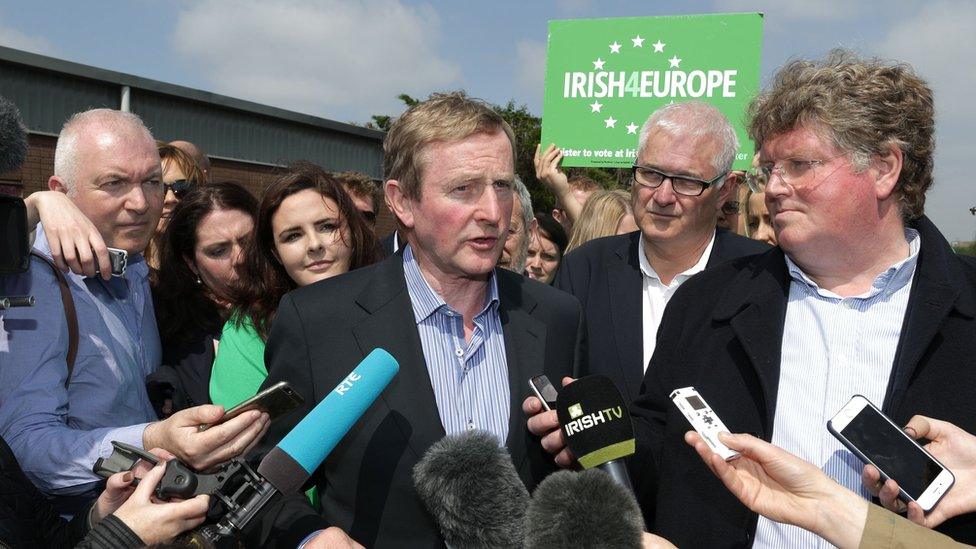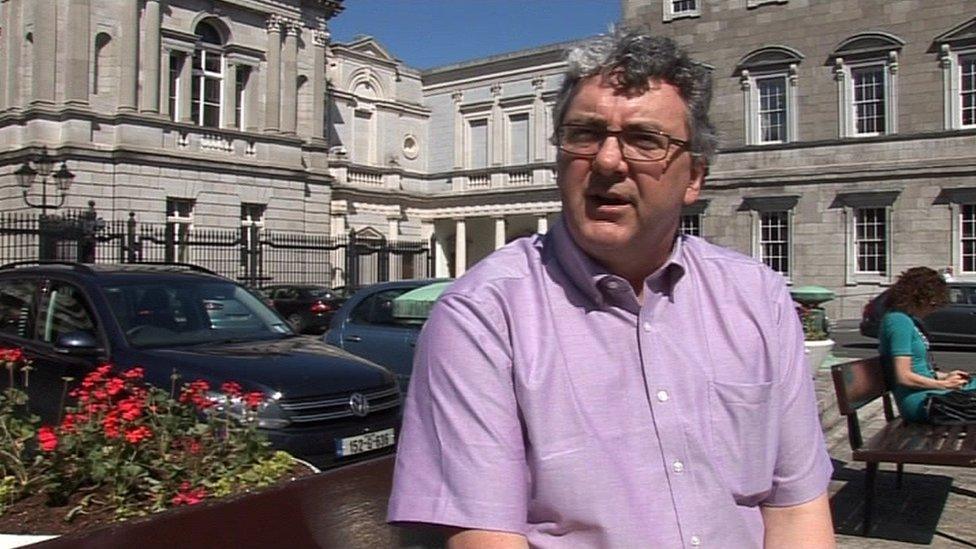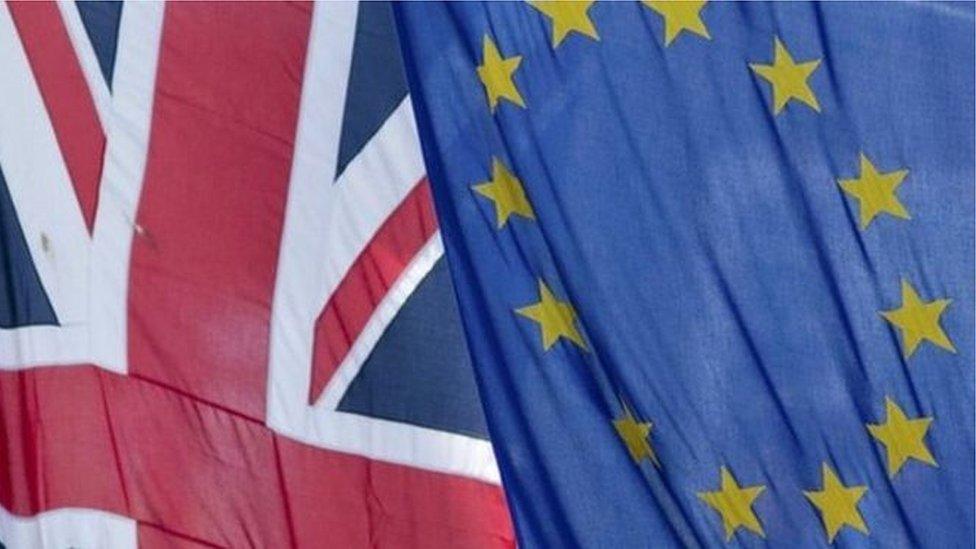EU referendum: How will British vote affect Republic of Ireland?
- Published

Taoiseach (Irish Prime Minister) Enda Kenny visited Ruislip in west London last month to encourage Irish emigrants living in the UK to vote to remain in the EU
The Republic of Ireland, the only country which has a land border with the UK, is taking a very keen interest in Britain's European Union referendum debate.
Until relatively recently, the two states had a troubled relationship because of Northern Ireland and Britain's past in Ireland.
In the 2014 referendum on Scottish independence, the Republic of Ireland's government made a point of being seen to be neutral.
But that is not the case when it comes to this month's vote on a British exit (Brexit) from the EU.
While saying it is matter for the British people to decide, Taoiseach (Irish Prime Minister) Enda Kenny has made a series of visits to the UK, urging the estimated 400,00 Irish citizens living in Britain to vote to remain in the EU in both countries' interest.
"Europe will be much stronger with Britain as a fundamental member", Mr Kenny said.
"So it's a vital issue for Europe, it's a vital issue for Britain, but it's also a critical issue for Ireland."
Mr Kenny took that message to Ruislip, west London, on the May Bank Holiday weekend, when London was playing his home county Mayo in the All-Ireland Gaelic football championship.
Most, though not all, of the emigrant fans present seemed to agree with the taoiseach's assessment.
When both states joined what was then the European Economic Community in 1973, the Republic of Ireland was economically dependent on UK trade; it had no choice other than to join, once Britain decided to do so.
But that dependency is no longer the case, even though Britain remains the Republic of Ireland's single biggest European trading partner.

Dr Edgar Morgenroth said a British exit from the EU would have "negative economic implications" for both the UK and Republic of Ireland
Currently, it is estimated that more than 1bn euros (£793m) in merchandisable or sellable goods travel between the two islands every week.
While some say a Brexit would be good news for Dublin's financial services industry, the independent think-tank, the Economic and Social Research Institute, is of the view that, overall, a Brexit would be bad for the Republic of Ireland.
Dr Edgar Morgenroth from the ESRI says that such a development would not be catastrophic, but it would be significant.
"A Brexit would have negative economic implications for the UK and it would also have some negative implications for Ireland," he said.
"Our analysis suggests that the trade impact on Ireland could be to reduce exports on the merchandisable side by 3%."
Then there is the worry about the return of customs posts and a hard border between Northern Ireland and the Republic of Ireland if there is a Brexit and fears about the political and economic implications of that.
Because of all the uncertainty, the vast majority of political parties and politicians in the Republic of Ireland are hoping that the UK electorate votes to stay in the EU.
But not everyone.

Irish parliamentarian Thomas Pringle supports the Brexit campaign and says he hopes it will speed "the break-up of the European Union"
Thomas Pringle, a Independent member of the Irish parliament, representing Donegal, believes the EU is fundamentally flawed, undemocratic and unaccountable.
"I hope that the British people vote Yes to Brexit on June 23 because if it speeds the break-up of the European Union, I believe that would be a very welcome development for all the citizens of Europe and will allow us on the west coast of Ireland to exercise our own rights to our own fishing resources," Mr Pringle said.
Four months after the Republic of Ireland's general election, many residents believe another vote - the UK's Brexit referendum - may turn out out to be as important, if not more so, for people's livelihoods south of the border than their own poll.
- Published3 June 2016

- Published3 June 2016

- Published30 December 2020
